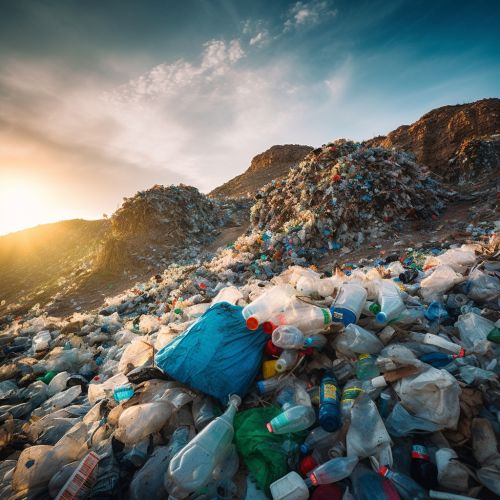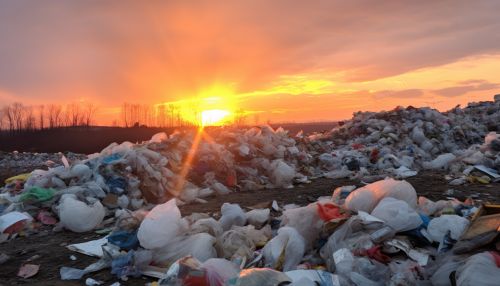Plastic Pollution
Introduction
Plastic pollution is a global issue that has been escalating over the years due to the increasing production and consumption of plastic materials. It refers to the accumulation of plastic products in the environment, which adversely affects wildlife, habitats, and humans. Plastic pollution can occur in cities, oceans, rivers, and in the air.
History
The history of plastic pollution dates back to the 19th century when the first synthetic plastic, Bakelite, was produced in 1907. The mass production of plastic materials started during the 1940s and 1950s, marking the beginning of the global plastic era.


Causes
There are several causes of plastic pollution, including overuse of plastic products, improper waste disposal, lack of recycling, and the non-biodegradable nature of most plastics.
Overuse of Plastic Products
The overuse of plastic products is one of the main causes of plastic pollution. This is due to the convenience, versatility, and low cost of plastic materials, which have led to their widespread use in various sectors, including packaging, construction, transportation, and electronics.
Improper Waste Disposal
Improper waste disposal is another major cause of plastic pollution. This includes littering, illegal dumping, and the improper handling of plastic waste during collection and transportation.
Lack of Recycling
The lack of recycling is also a significant contributor to plastic pollution. Despite the increasing awareness about the importance of recycling, a large percentage of plastic waste is not recycled and ends up in landfills or the environment.
Non-Biodegradable Nature of Plastics
Most plastics are non-biodegradable, meaning they do not break down naturally in the environment. This leads to the long-term persistence of plastic waste in the environment, contributing to plastic pollution.
Effects
The effects of plastic pollution are far-reaching and affect various aspects of the environment and human health.
Effects on Wildlife
Plastic pollution has devastating effects on wildlife. Animals, particularly marine species, can mistake plastic waste for food, leading to ingestion and often fatal consequences. Plastic waste can also entangle wildlife, causing injury or death.
Effects on Human Health
Plastic pollution also poses risks to human health. Microplastics, tiny plastic particles less than 5mm in size, can enter the human body through food, water, and air, potentially causing a variety of health issues.
Effects on the Environment
Plastic pollution has detrimental effects on the environment. It can degrade natural habitats, reduce biodiversity, and contribute to climate change.
Solutions
Addressing plastic pollution requires a multi-faceted approach, including reducing plastic use, improving waste management, promoting recycling, and developing biodegradable plastics.
Reducing Plastic Use
Reducing plastic use is a crucial step towards mitigating plastic pollution. This can be achieved through various strategies, such as promoting the use of reusable products, implementing plastic bans, and raising public awareness about the impacts of plastic pollution.
Improving Waste Management
Improving waste management practices can significantly reduce the amount of plastic waste that ends up in the environment. This includes implementing effective waste collection and disposal systems, enforcing anti-littering laws, and promoting responsible waste disposal behaviors.
Promoting Recycling
Promoting recycling can help reduce the amount of plastic waste that goes to landfills or the environment. This involves improving recycling infrastructure, encouraging the use of recycled plastic products, and educating the public about the importance of recycling.
Developing Biodegradable Plastics
Developing biodegradable plastics is another potential solution to plastic pollution. Biodegradable plastics are designed to break down naturally in the environment, reducing their persistence and impact.
